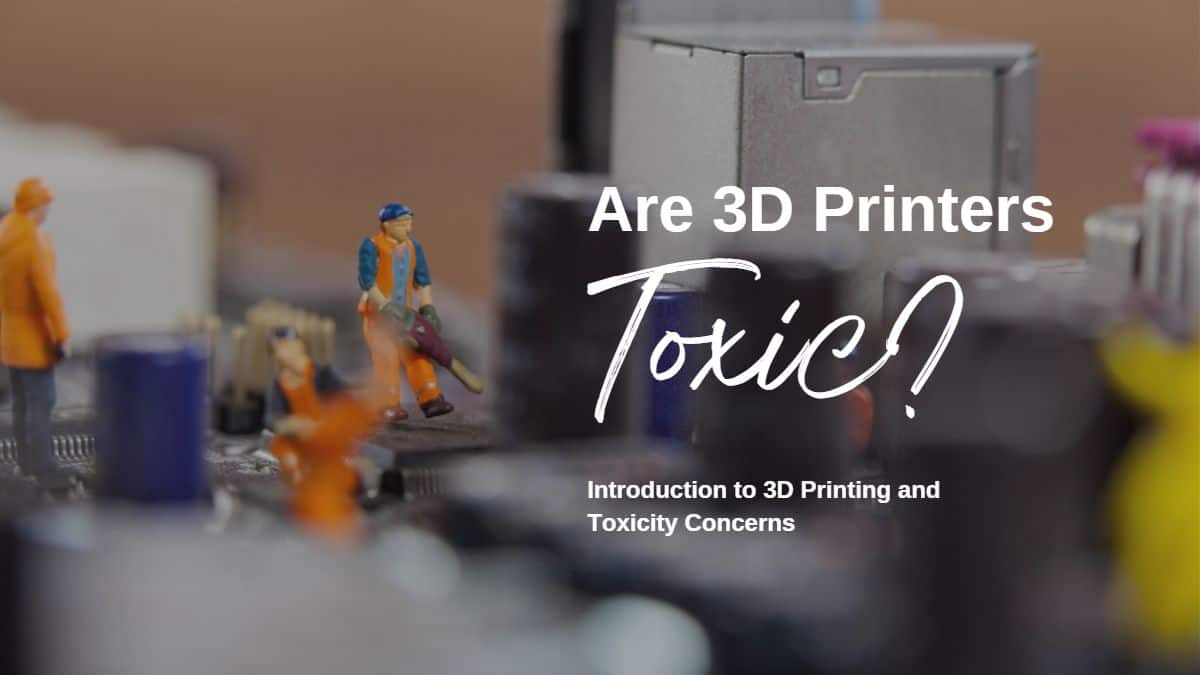Are 3D Printers Toxic?

Table of Contents
The knowledge of all that 3D printers can do has made people realize how limited their lives were before the advent of 3D printers. What some people see when they think about 3D printers are the many benefits they bring.
The benefits associated with 3D printers are great. However, it is important to note that 3D printers have cons just as pros.
Come to think of it. Owning a machine that melts plastics in your home seems cool. However, how safe is it? Being able to form various parts by simply melting plastics with a machine is great. However, this process might only be somewhat safe.
Do 3D Printers Cause Emissions?
When used, 3D printers cause some emissions. However, not many people pay attention to the emissions they give out. Due to the emissions these printers cause, people that spend time around them when they work might have to deal with exposure to toxins. These toxins come in the form of fumes and small particles.
The level of toxins released by 3D printers significantly depends on the type of thermoplastic being melted. As much as some thermoplastics do not emit as many toxins into the air as others, the process involved in 3D printing is not the safest.
Conclusion
Since 3D printers are associated with releasing harmful gases, the area they are used must be properly ventilated. This way, the concentration of these harmful gasses in an area is reduced to its minimum. That's not all. Although people have 3D printers in their homes, using them in their living space might not be brilliant.
If you have to do some 3D printing indoors, you might need a particle filtering system. This way, the concentration of released toxins does not go past levels that one can tolerate without having to deal with health implications.